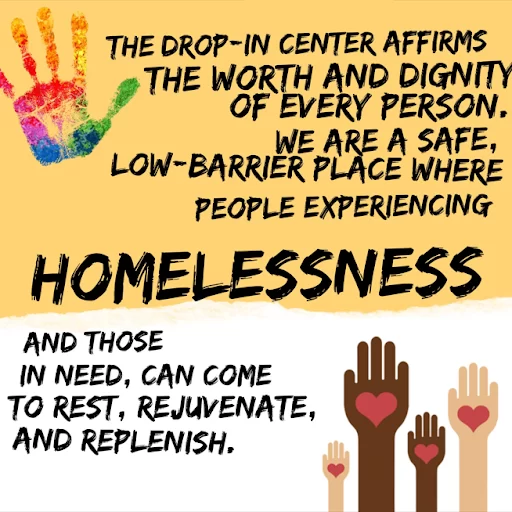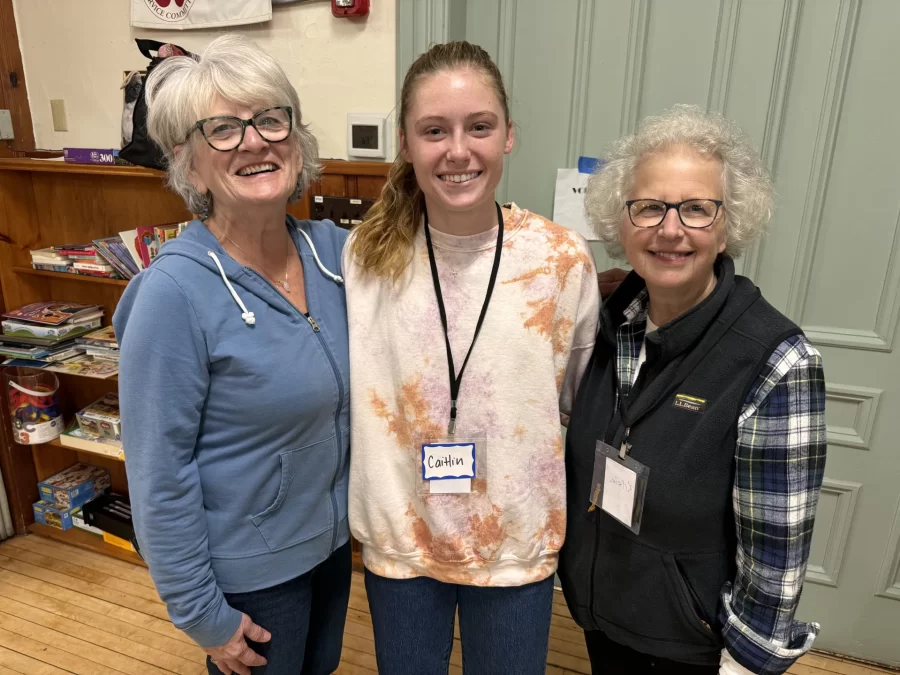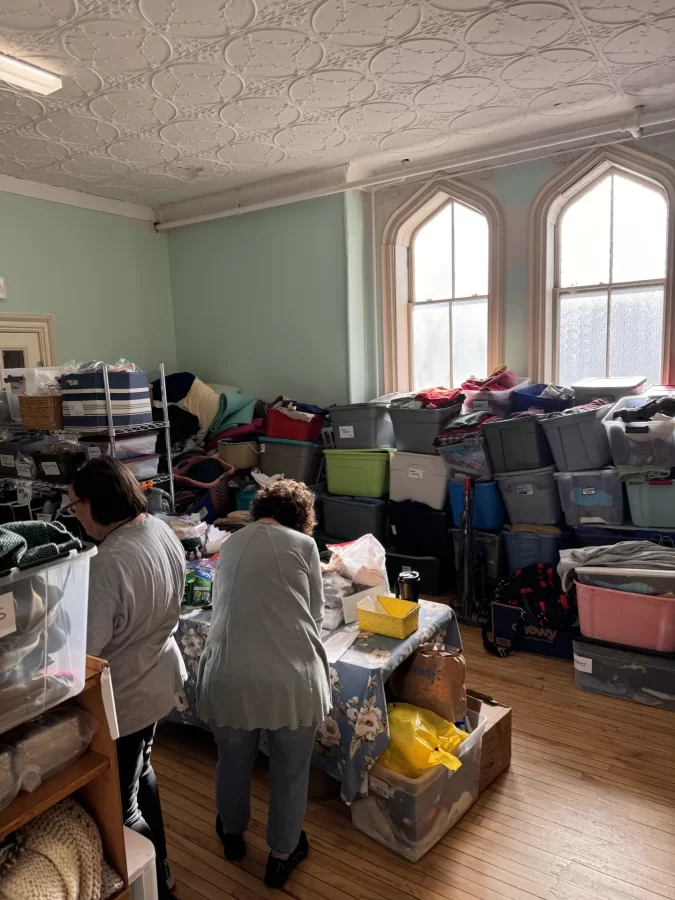Come As You Are
Through the course-based community-engaged learning (CEL) program facilitated by the Harward Center, more than 1,000 Bates students annually spend time and energy on mutually beneficial volunteer placements and projects as part of their academic journey at Bates. This fall semester, our faculty are teaching twenty-seven CEL courses spanning eighteen disciplines. In the process, their students are working with community partners addressing social issues including food security, homelessness, indigenous sovereignty, and much more. Our enduring partnerships across Lewiston and Auburn make this work possible. In this week’s blog post, we highlight a relatively new partnership that holds great promise both for ongoing student engagement and learning, and for the continued support of our unhoused neighbors.
Students from Morgan Kinney’s First Year Seminar, “The Civic Self: Exploring Place and Purpose in Community,” and Emily Kane’s 100-level Sociology course, “Contemporary Social Problems,” are putting theory into practice each week this semester at one of several different community sites. Three of those students – first-years Sam Sidoti, Maeve Mufson, and Caitlin Quinn – spend most Saturday mornings at the Drop-in Center in Auburn, where they are strengthening a budding partnership between Bates and the Drop-in Center. Professor Kane shares: “When Morgan and I met with folks at the Drop-In Center late this summer to consider possible connections for my course on Contemporary Social Problems, it was clear that their great work would connect really well with this course, in which the many social problems we study include housing, food security, poverty, health equity, and much more.”
The Drop-in Center provides wrap-around services for people experiencing homelessness in the LA community. Currently located on Pleasant Street in Auburn at the Unitarian Universalist Church, the Center was developed in a grass-roots manner by community members who observed a growing need for food, shelter, and connection to resources for individuals experiencing homelessness in their community. Opening their doors for the first time in February 2022, the Drop-in Center has since become an independent 501(c)(3) with big plans. As Susan Martin, a volunteer staff member who helps run the center and has helped forge the Bates relationship explains: “As our numbers have grown over the past three years, [our location] has become unsustainable. We are very excited to have been offered the opportunity by the City of Auburn to move to 121 Mill St. at the end of this year. This move will not only offer us more general space but will also provide us with a commercial kitchen, additional bathrooms and showers, and a larger store area. The City of Auburn will also have many of its support services relocated to that building and have available office space for other local resources. This will be a huge help to our guests.” The students who have seen the work of the Drop-in Center first hand are thrilled to see their services being expanded. Reflecting on the diligence and commitment of the staff and volunteers at the Drop-In Center, Sam Sidoti, a first-year student from New Hampshire, noted: “They put things aside for visitors when they remember they said they needed it; they make sure they get what they need (food, clothes, shower, etc.); and they are always on the lookout for more innovative ways to care for people.”
The Drop-in Center’s tagline – “Come as you are” – authentically represents their approach to engaging both the guests who use their services and the volunteers who support their mission with day-to-day jobs like cooking, organizing the “free store,” and, perhaps most importantly, being in conversation and solidarity with guests who want to “rest, rejuvenate, and replenish.” According to regular reflections completed by students in both the CEL courses that are partnering with the Center, students have been blown away by the commitment that the staff and regular volunteers have to the holistic experience of guests and volunteers at the Center. During the planning stages of the partnership, Professors Kane and Kinney remarked on the keen interest Susan Martin and Kitsie Claxton of the Drop-in Center showed in Bates students’ learning. Each student has cited important moments of learning, including having societally-engrained stigmas about homelessness challenged and their perspectives transformed through regular engagement with the guests at the Center.
Martin says of Sidoti, Mufson, and Quinn, “The student volunteers who have joined us have clearly shown remarkable levels of commitment and compassion for our unhoused neighbors. They have become important members of our team!” The appreciation seems mutual, as Saturdays at the Drop-in Center have generated overwhelmingly positive reflections in class discussions and written reflections alike. Mufson articulates a key takeaway from this semester’s CEL: “The collaboration between our communities demonstrates the importance of unity and how positive social change occurs when people come together.”
Next semester, as the Drop-in Center expands in the new location, Professor Kane will again offer students the opportunity to be part of this work through her Sociology class, “Power, Privilege, and Inequality.” For her part, Kinney, who is a visiting lecturer this semester and a full-time Harward Center Associate Director, looks forward to weaving the Drop-in Center into CEL courses for many semesters to come.
NOTE: The Drop-in Center was recently selected (November 2024) by 100 Women Who Care Androscoggin to receive over $10,000 in charitable contributions from its members and their matching grant sponsor, the Schultz Foundation.


